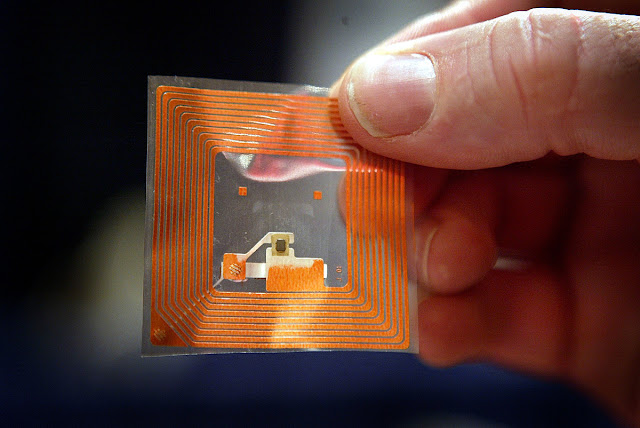Chipless RFID; used in anti-counterfeiting applications and for tagging documents
 |
Chipless RFID Market
When the RFID tags are made without silicon chips, microchips, or the RFID IC they are known as Chipless RFID Tags. The chipless RFID tags employ a plastic or conductive polymers rather than silicon-based ICs. They send back a part of the user's signal with the restored detection information. The redirected signal generally has some kind of different and distinctive fingerprint that allows the user to detect the tag and transfer the information. Chipless RFID tags seem to work with a wider range of temperatures and are low sensitivity to RF interference. These tags have been established to be employed in anti-counterfeiting claims and tagging forms. The quantity of data that these tags can restore and transfer is limited because of the absence of a memory chip. The modern era of digitization is moving forward to update the manual system with automation. The chipless RFID is a known wireless technology, which eradicates the difficulties of human interference and uses an Automatic Identification technology market.
Though the low price
of optical barcodes dominates them for a few years, their constrained read
distance, decreased data storage capacity, and notable manual participation in
their operation led to the need for a substitute. The conventional RFID overpowers
all the above-stated limitations of an optical barcode. However, the price of
the RFID is the main obstacle. The main problem in making the Chipless
RFID Market is data encoding and transferring, due to the absence of IC utilized
here. Anyhow, various processes are being utilized which offer the best level of
security. This is a field in RFID which has been initiated to get a better level of adhesion.
People project there to be huge creativity in this field within the upcoming years.
Chipless RIFD tags are of 5 types; they are phase frequency, polarization
frequency, time-frequency group delay, time-frequency nongroup delay, and
modulated encoding. US Department of Defense (DOD) and the FDA have accelerated
the use of RFID technology for supply chain management and for tracing
products.



Comments
Post a Comment